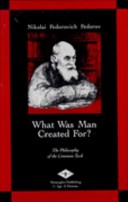Reflection is Destructive
Notes:
Folksonomies: academia cosmism
Taxonomies:
/science/geology/seismology/earthquakes (0.398091)
/law, govt and politics/government (0.164109)
/science (0.156057)
Keywords:
inactive knowledge men (0.984163 (neutral:0.000000)), destructive effect (0.878037 (negative:-0.746771)), practical application (0.876179 (negative:-0.336873)), conscious agent (0.853825 (positive:0.284941)), moral aspirations (0.849237 (positive:0.258338)), learned class (0.844047 (negative:-0.542308)), conscious tool (0.840939 (neutral:0.000000)), common action (0.834135 (neutral:0.000000)), human race (0.832923 (negative:-0.233902)), blind force (0.832813 (negative:-0.531789)), supreme bliss (0.830285 (positive:0.341450)), mutual constraint (0.828965 (neutral:0.000000)), physical weakness (0.821169 (negative:-0.251030)), single task (0.820570 (negative:-0.533123)), single plan (0.819308 (neutral:0.000000)), present state (0.807374 (neutral:0.000000)), reflection (0.793132 (negative:-0.609330)), caste (0.600928 (negative:-0.538912)), elaboration (0.600196 (neutral:0.000000)), contradiction (0.592191 (neutral:0.000000)), discord (0.591964 (positive:0.341450)), adulthood (0.588983 (positive:0.266205)), morality (0.581591 (neutral:0.000000)), philosophers (0.577938 (negative:-0.538912)), magnitude (0.577243 (positive:0.341450)), mankind (0.577229 (neutral:0.000000)), cognition (0.575193 (negative:-0.303203)), behaviour (0.572215 (negative:-0.346548)), necessity (0.571731 (negative:-0.251030)), elimination (0.568813 (negative:-0.604224))
Entities:
Commission:Organization (0.947066 (positive:0.045210))
Concepts:
Human (0.969782): freebase | opencyc | dbpedia
Meaning of life (0.928008): freebase | yago | dbpedia
Universe (0.835812): dbpedia | freebase
Psychology (0.810145): dbpedia | freebase | opencyc
Morality (0.669377): dbpedia | freebase
Mind (0.577596): dbpedia | freebase | opencyc
Behavior (0.550470): dbpedia | freebase
Reflection (0.532717): dbpedia | freebase | yago





